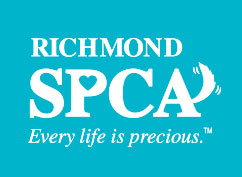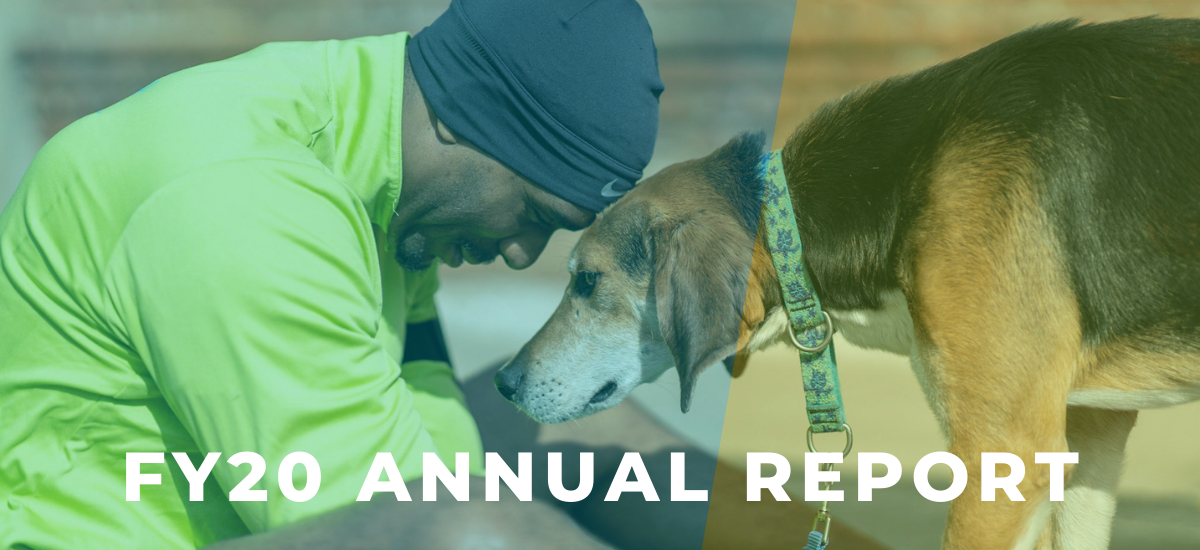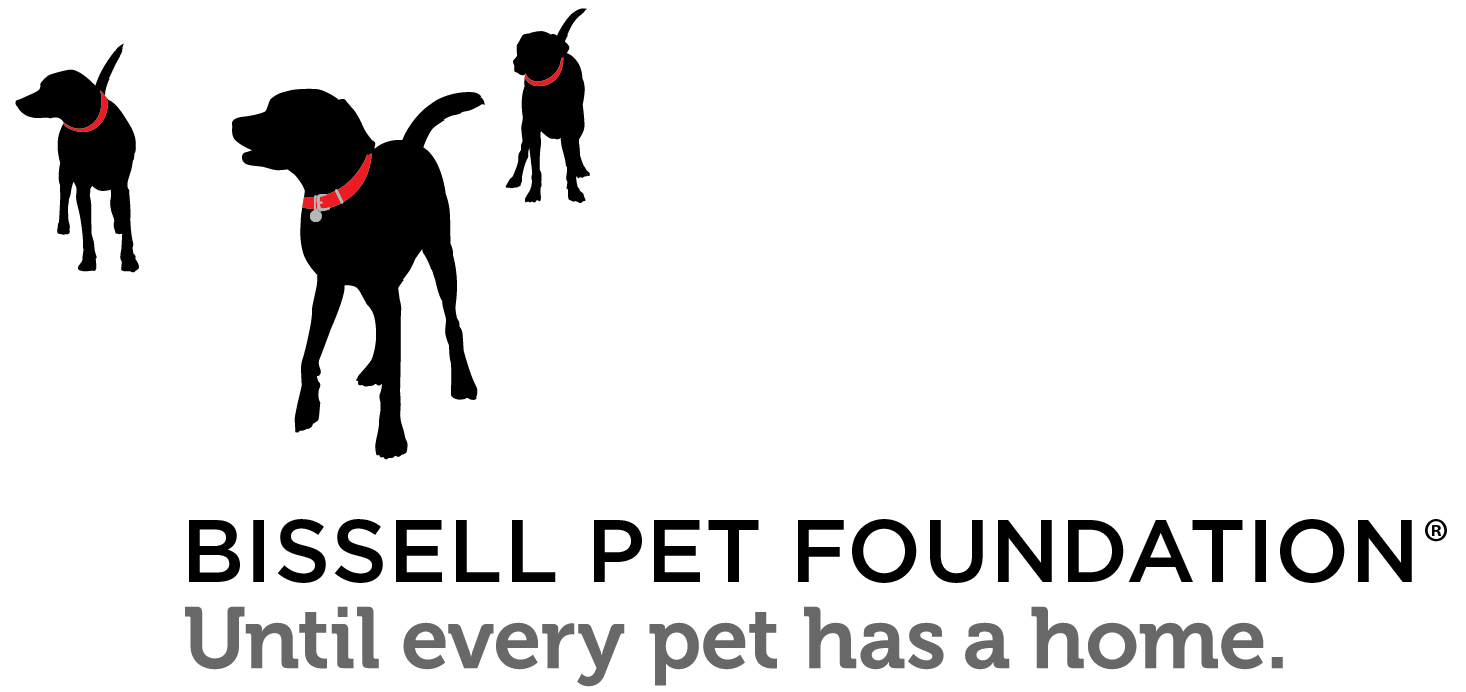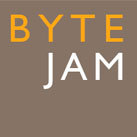Annual Report: Fiscal Year 2020
Our Annual Report for the Richmond SPCA’s most recent fiscal year, which ended September 30, 2020

If you are viewing our annual report on a mobile device, we recommend landscape mode.
Dear Richmond SPCA Family,
Every year, we prepare for a variety of “what ifs” and how those “what ifs” would affect vulnerable animals and the people who love them across our community. We expect new challenges and put plans in place for those we can anticipate. But, in Fiscal Year 2020, our biggest challenge—a global pandemic—was not one any of us could have predicted. Nor was it one for which we had any clear roadmap at its outset.
COVID-19 started impacting us about halfway through our fiscal year. When it was first detected in Virginia, we were only days away from our second biggest fundraiser of the year, our 18th Annual Dog Jog and 5K Run, an event that attracts thousands of friends and supporters to our humane center every year and raises vital funds for the animals in our care. In an instant, plans for that beloved community event would change along with nearly every aspect of our daily operation.
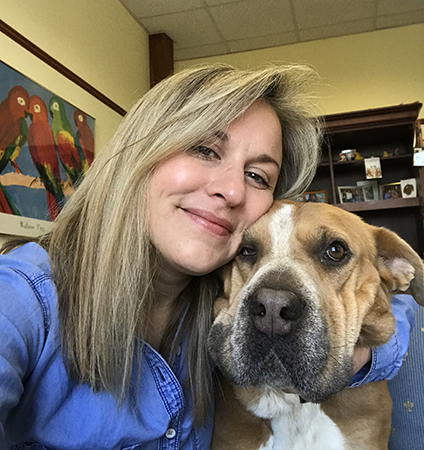
While carefully monitoring public health guidance and reports, our team reimagined our essential programming with an eye to delivering our crucial mission without interruption. The way we provided our services looked very different in the last six months of our fiscal year compared to the first, but those necessary and innovative engineering changes made it possible for us to keep rescuing, rehabilitating and adopting homeless pets to loving homes, treating patients in our Susan M. Markel Veterinary Hospital whose guardians were facing growing financial insecurities, delivering programs of pet retention like our Pet Pantry, temporary boarding and Behavior Helpline and so much more. Our objectives were always to be there for the animals and people who needed us while simultaneously keeping our team and the community we serve safe.
I am proud that the path we forged—which your support made possible—enabled us to achieve the results summarized in this annual report. We may not have forecast a global health emergency when planning for Fiscal Year 2020, but the emergence of this challenge midyear never derailed our journey to lifesaving. We mustered the optimism, courage and creative energy needed to faithfully fulfill our mission—just as this remarkable organization has done since its founding 129 years ago. Animals and the people who love them depend on our resilience, and we will not let them down.
Because of you, we were able to find new ways to thrive under the most difficult of circumstances. And we will keep thriving because precious companions and guardians in need deserve nothing less.
With gratitude for your friendship and kindness,

Tamsen Kingry
Chief Executive Officer
Lives Saved
Our 2020 Fiscal Year began on October 1, 2019 with 252 animals in our care. During the course of the year, we brought in an additional 3,621 homeless pets in need, caring for a total of 3,873 pets at our humane center by the fiscal year’s end on September 30, 2020. We concluded FY20 with 420 pets in our care awaiting adoption in the year ahead.
The pandemic had a marked impact on shelter intake and adoption trends around the country, and the decline in the number of homeless dogs and cats entering government shelters meant that, for many months of 2020, the municipal shelters with whom we partner had fewer animals in need of transfer.
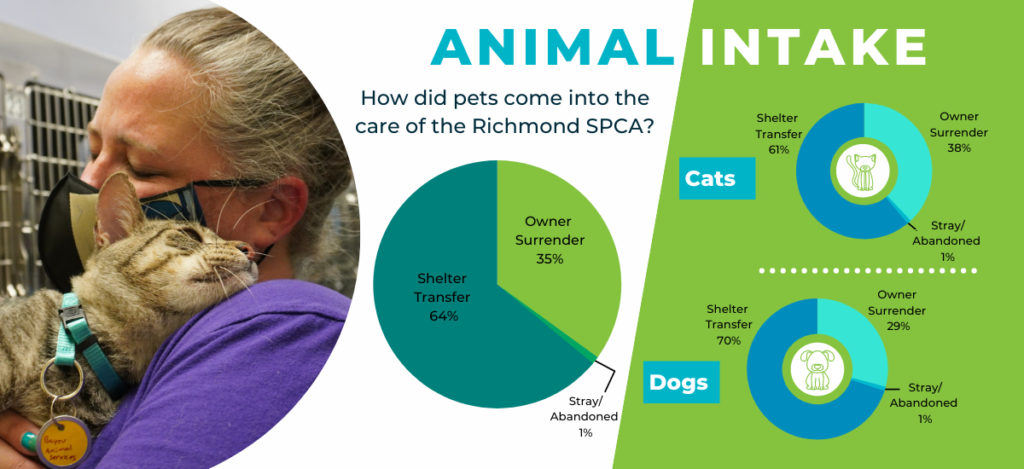
The pets we transferred into our care this year came from 64 partner shelters. Our partners are primarily municipal shelters, operated by city and county governments with limited resources. Within the Commonwealth of Virginia, we partnered with 50 other sheltering organizations during the fiscal year, and we took into our care pets from an additional 14 shelters in other states as well as the territory of Puerto Rico.
From the time pets arrive at our humane center, our animal care technicians are here for them. These are the devoted staff who ensure that cozy beds and toys greet every pet when he or she is shown to his or her kennel. Throughout a pet’s stay, our animal care team is providing walks, scooping litter boxes, keeping all animal housing areas clean and comfortable, and monitoring the pets’ eating and overall condition.
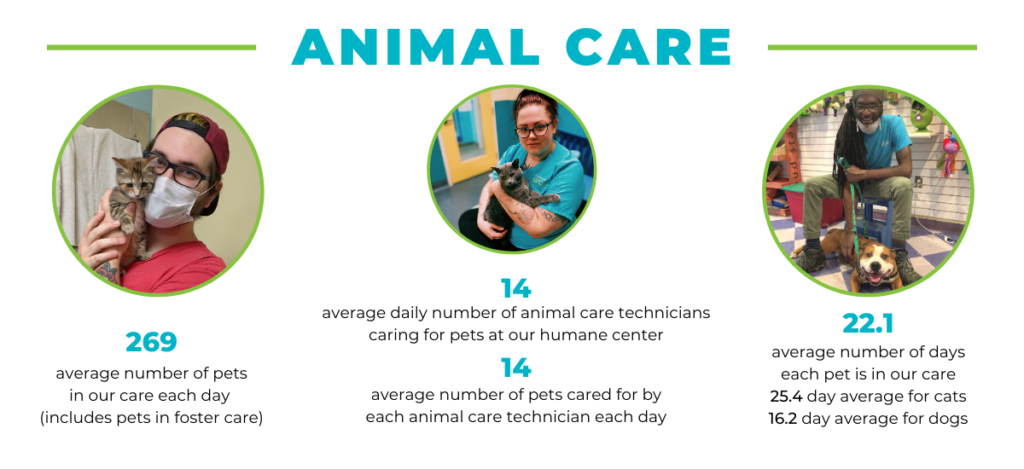
Every homeless pet arriving at our humane center receives the same thorough examination by our veterinarians as well as all age-appropriate vaccinations and other essential preventative care, microchipping and sterilization (for those who were not yet spayed or neutered when brought into our care).
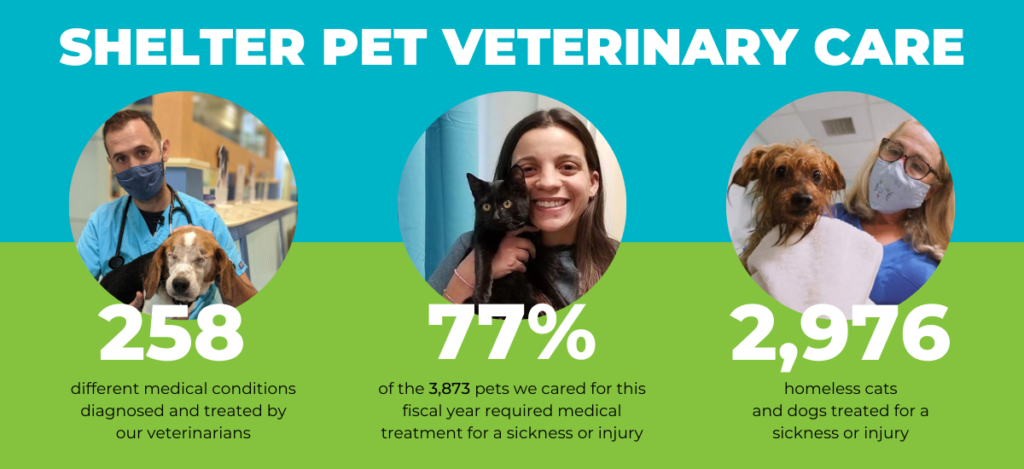
The majority of pets in our care are treated entirely in house, including surgeries performed at our Susan M. Markel Veterinary Hospital. The top conditions diagnosed and treated by our Shelter Pet Veterinary Services team are represented in the graphic below.
Foster care volunteers take pets into their own homes, providing dedicated care and attention and expanding our capacity to save lives beyond the walls of our facility. By moving our Meet the Fosters orientation online, more volunteers have signed up, completed training and welcomed foster pets into their homes.
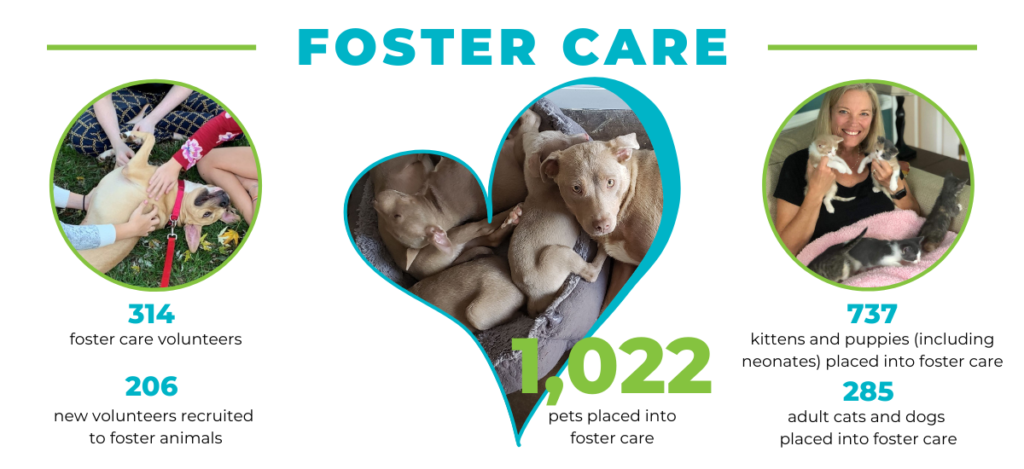
To reduce visitor traffic, observe necessary social distancing and best protect the health and wellbeing of our staff and members of the public, we transitioned to adoptions by appointment in March. Our counselors made 1,900 appointments with potential adopters from March 17 to September 30.
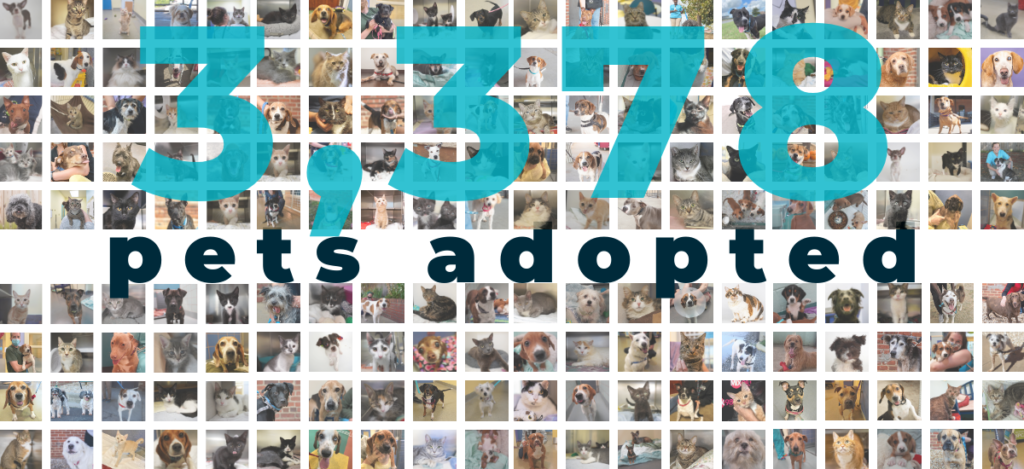
During this fiscal year, we united 83 pets age 5 or older with adopters age 60 or older through our Seniors for Seniors program. Adoptions to members of the military and first responders increased to 86 from 40 in the prior fiscal year.
Programs & Services
The mission of our Susan M. Markel Veterinary Hospital is to ensure that families of all means have access to treatment options they can afford for their canine and feline companions. As an expansion of the Richmond SPCA’s pet-retention services, the Susan M. Markel Veterinary Hospital helps pets stay with their families while enjoying a greater quality of life. Beginning in March, we shifted to curb-side service to continue treating our patients and prioritized urgent care for sick and injured pets.
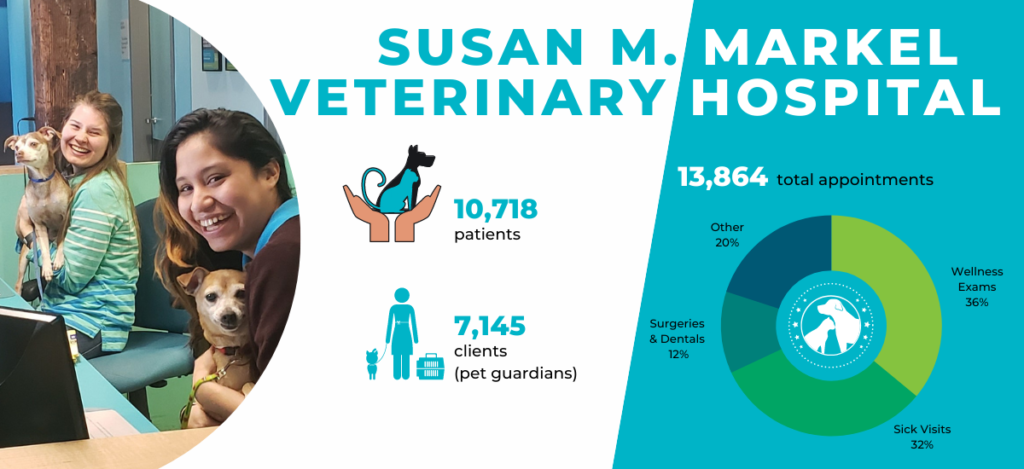
Fees for services at the Richmond SPCA’s Susan M. Markel Veterinary Hospital are structured to make veterinary treatment affordable for our patients’ guardians. However, in some cases, even our very low fees are more than some under-resourced pet guardians can financially afford.
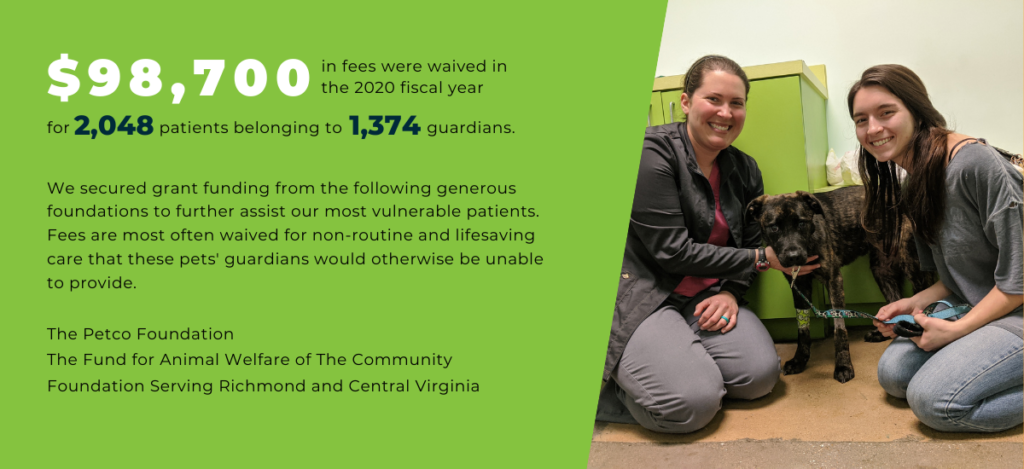
Compassionate management of community cat populations through Trap-Neuter-Return, a program through which colonies of cats are humanely trapped for the purpose of having them sterilized and vaccinated against rabies, is vital to creating and sustaining a no-kill community. The Richmond SPCA is the area’s largest provider of free sterilization surgeries and rabies vaccinations for community cats. We also provide rabies booster shots for community cats at no charge to the caretakers.
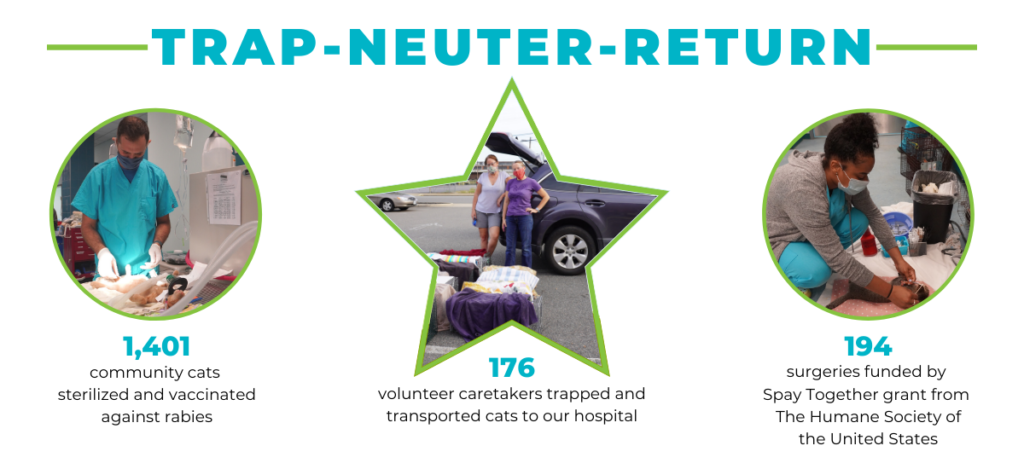
Humane Education at the Richmond SPCA includes programs for both children and adults that instill compassion, kindness and empathy for both humans and animals, develop character and promote responsible care for all creatures. While many programs, such as our popular Critter Camp, were not held during FY20 due to the pandemic, a new Humane Education Facebook Group provides parents and educators with lesson and craft ideas to try with their children.
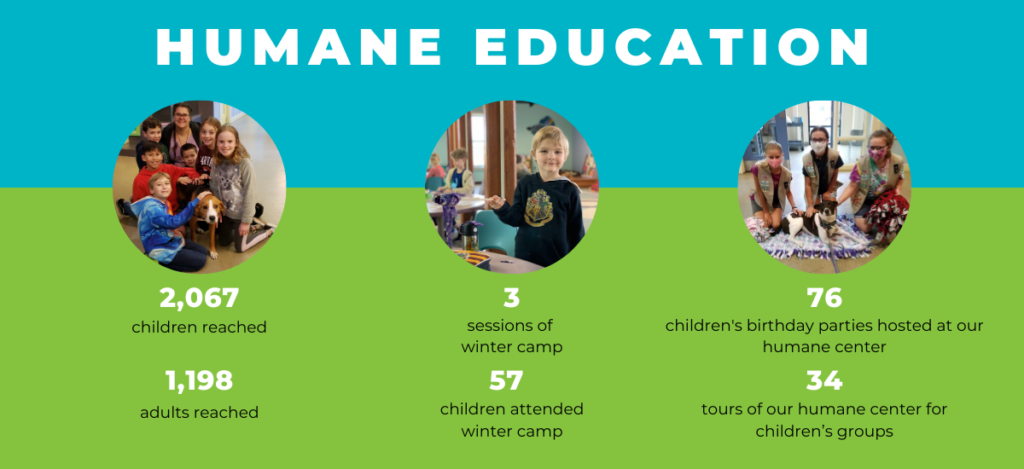
Recognizing behavior issues as the number one cause of pet relinquishment, the Richmond SPCA has developed programs that encourage guardians to resolve their pets’ behavior challenges in order to keep those pets in their homes. Free consultations by phone and email are available to our adopters and all area pet guardians. While spending more time at home with their pets, many people became more aware of behavior concerns and sought our trainers’ assistance.
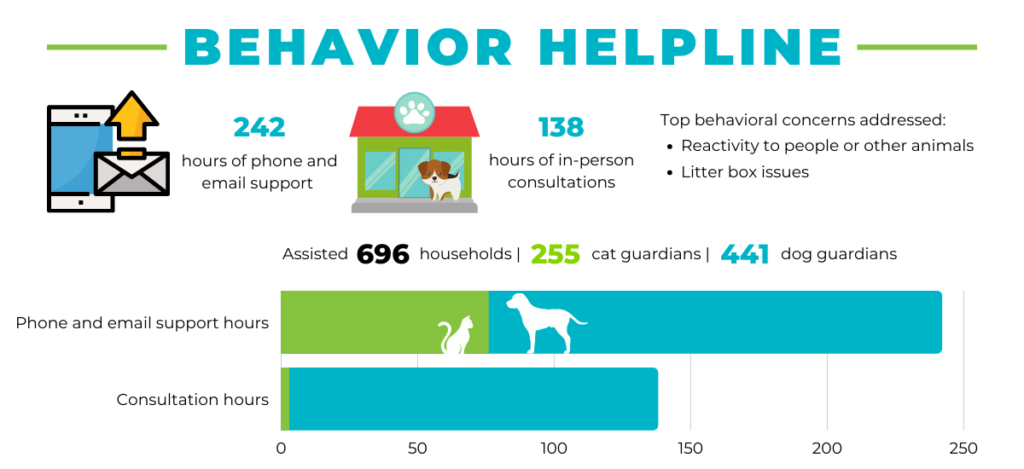
Our reward-based training classes are designed around the science of animal behavior and learning theory to build strong bonds between people and animals. Training at the Richmond SPCA is fun and rewarding for dogs and their handlers alike. Following Virginia’s initial shutdown, we introduced virtual classes and workshops, and some of these offerings have continued even as we’ve resumed in-person, socially distanced classes.
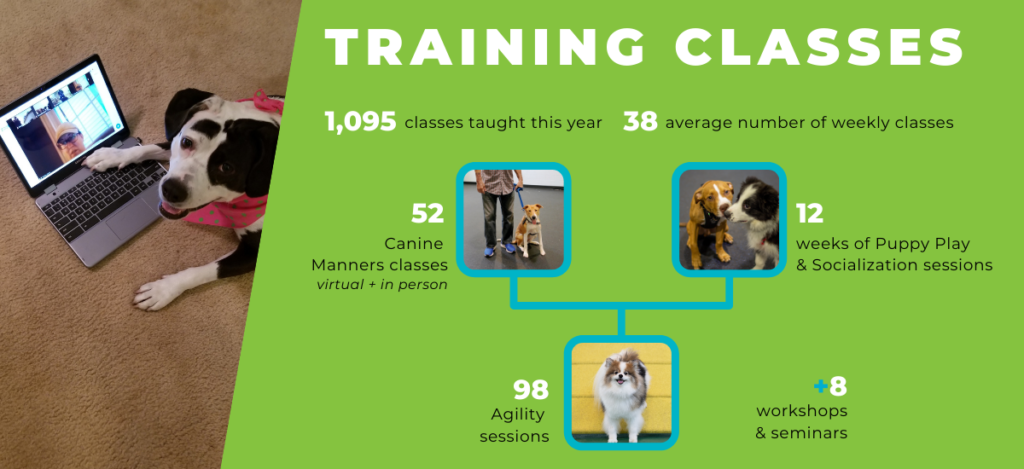
Five days a week, students are dropped off at the Richmond SPCA School for Dogs for individualized instruction with our trainers. All training uses positive reinforcement, meaning our students love coming to school!
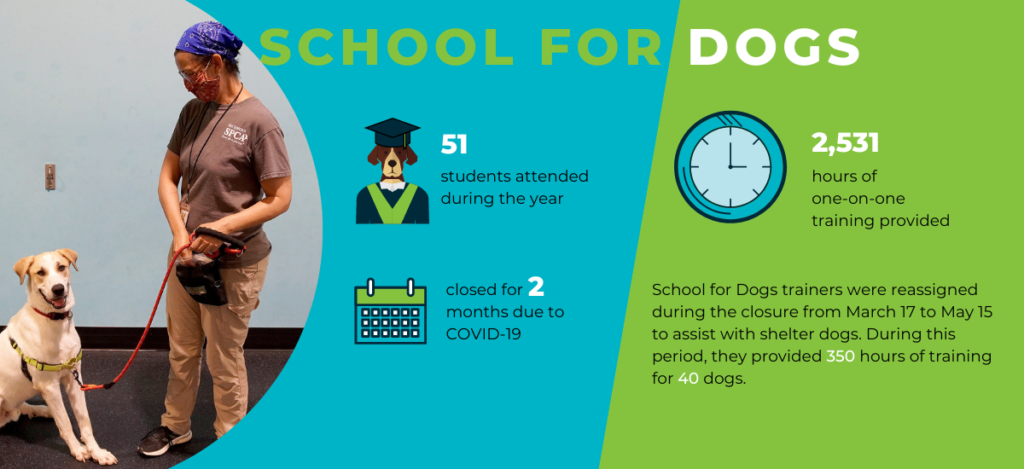
Community
Pet guardians have felt the impact of job loss, housing insecurity and other stressors amplified during this unusual year, and many have turned to our Project Safety Net. We serve the community through a multitude of programs that distribute pet food, Shelter Animals of Abused Families (SAAF) and assist guardians with finding new homes for pets they cannot keep.
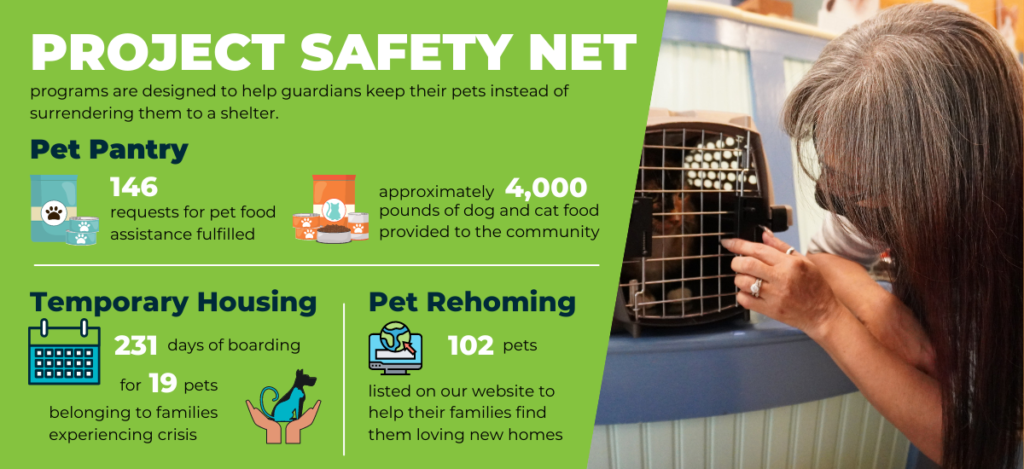
Though volunteers are an important part of every service the Richmond SPCA provides to the community, to reduce traffic to our humane center, most regular volunteer shifts were cancelled. Orientation and training sessions have not been scheduled for new volunteers since the initial shut down in March
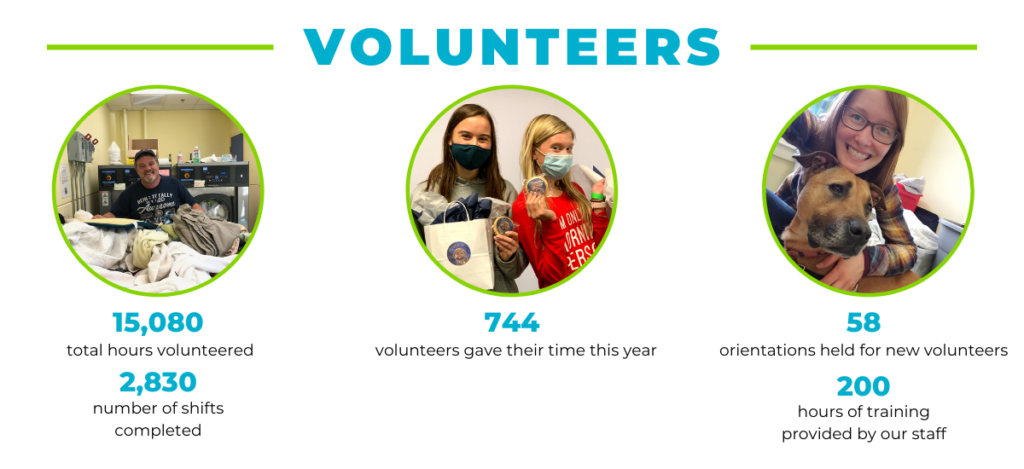
Many of the volunteer activities that continued in person have focused on providing enrichment, which is shown to reduce stress, improve physical health, and help animals to get adopted more quickly.
Blue Team members provide essential physical and mental exercise to the cats in our care and teach the cats behaviors that help prepare them for adoption.
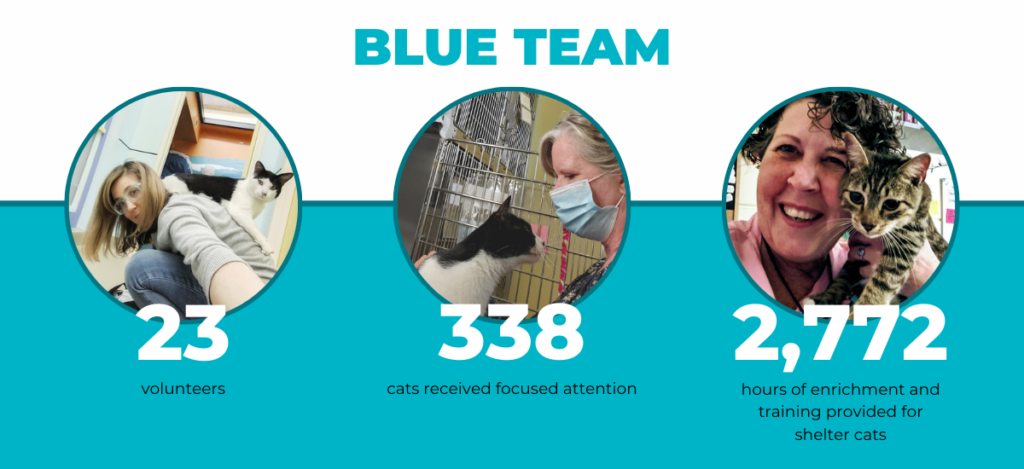
Green Team members are trained in using positive reinforcement to teach the dogs in our care skills that will help them find lasting homes. They also provide physical exercise, mental stimulation and occasional field trips to explore local parks.
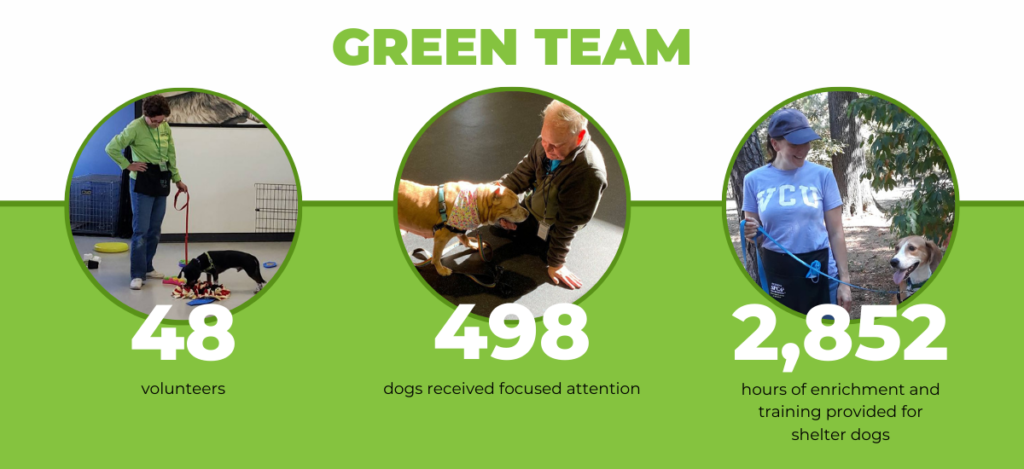
Outdoor runs are the perfect socially-distanced activity, and our Running Buddies volunteers continue to ensure homeless dogs in our care have the exercise they crave while waiting to find permanent, loving homes.
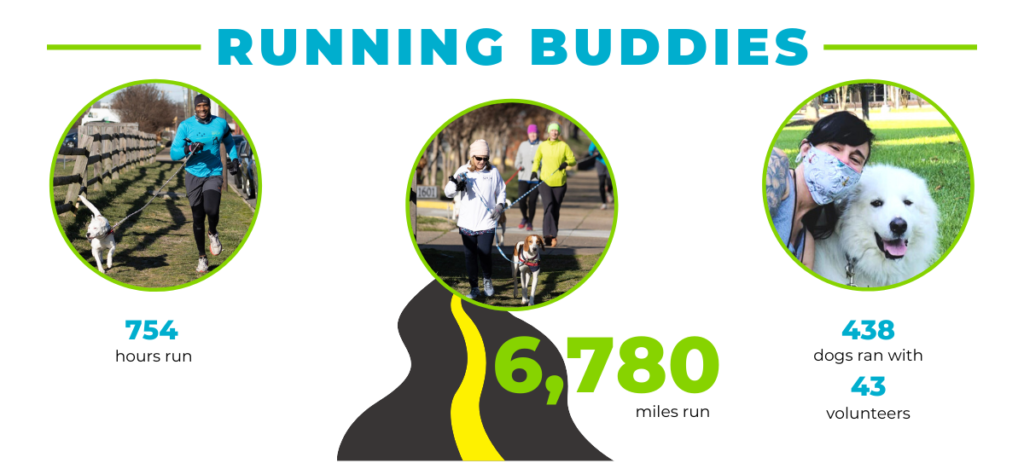
Finances & Human Resources
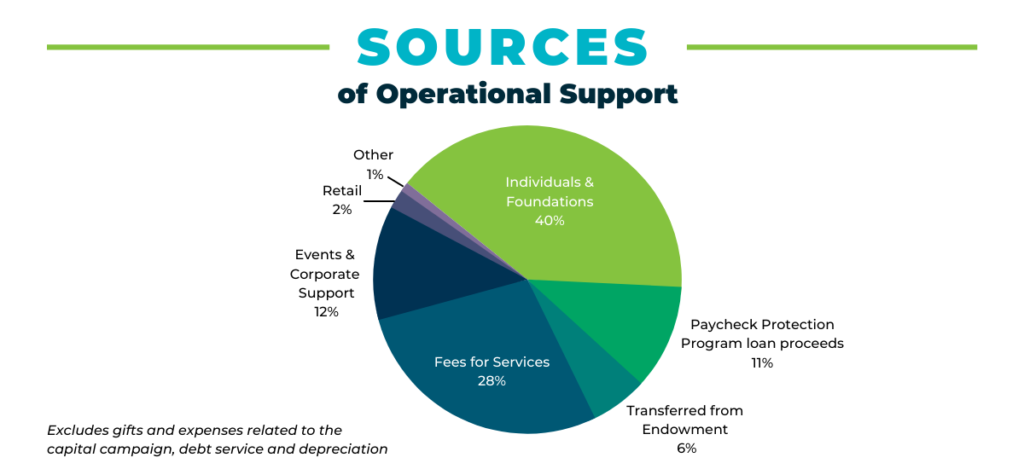
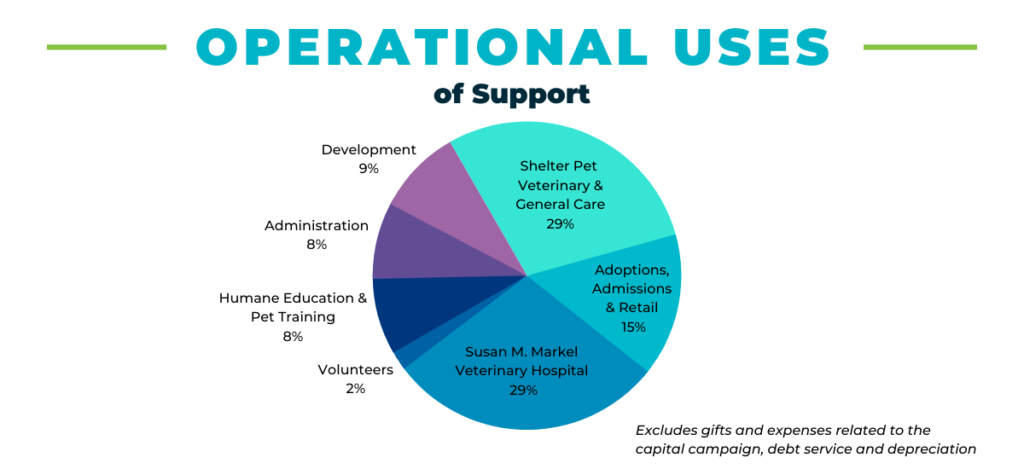
The Richmond SPCA’s team of remarkable professionals has remained steadfast throughout the public health crisis, and it because of them that we were able to face the challenges of FY20 with unwavering commitment to our mission and to vulnerable animals in our community. No staff have been furloughed during the pandemic.
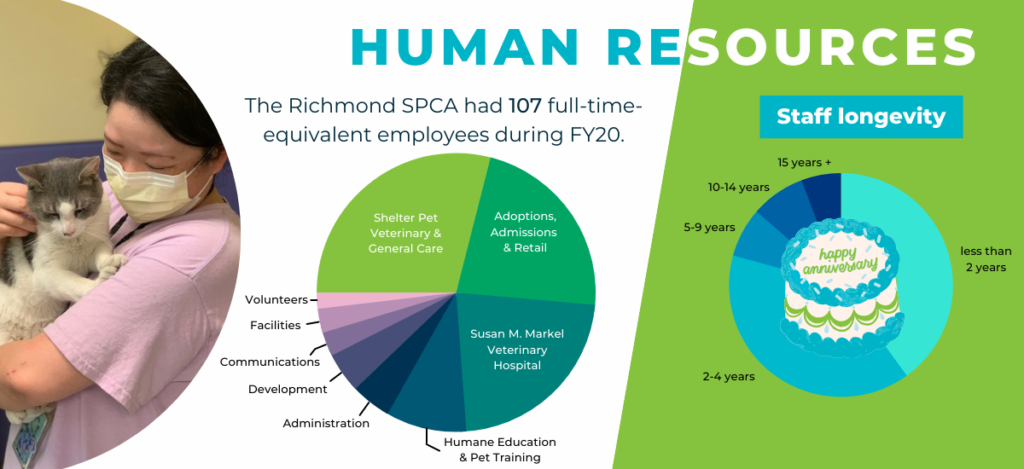
Additional Financial & Lifesaving Data
- View our Form 990 and Form 990-T from our most recently filed year.
- Save rate for the 2020 calendar year: 3,753 – 58 – 33 / 3,753 = 97.6%
Formula: [total outcomes] – [died in care] – [euthanized] / [total outcomes] - All Virginia releasing agencies submit annual statistics to the Virginia Department of Agriculture and Consumer Services (VDACS). View our annual public reports on their website by selecting which year you would like to review, choosing Individual Agency Report and then selecting Richmond SPCA.
- Our 2020 shelter data presented in the Shelter Animals Count matrix
- Data Saves Lives: Virginia’s animal shelter reporting requirements are a leading example of the transparency data can provide to facilitate lifesaving. The Petco Foundation has created this tool to illustrate 14 years of data from shelters in our state.
